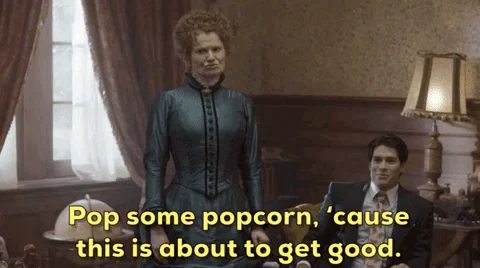Originally published at: Academic paper on language colonization turns out to have stolen its language | Boing Boing
…

One of the authors who was plagiarised says that the retraction notice doesn’t list everything that was copied.
Kari Chew, one of the researchers whose thesis the authors plagiarized, a member of the Chickasaw Nation, and a faculty member who studies indigenous education at the University of Oklahoma, told us that she learned about the misappropriated text last July:
We alerted the journal in August 2021. The journal placed the responsibility on us to provide evidence of the plagiarism. The journal then conducted its own investigation. Sage then became involved. The plagiarism is more extensive than stated in the retraction. Additional sources and authors who are not named in the retraction were also plagiarized.
Not an excuse, but I think this also shows how very problematic the whole “publish or perish” mindset of academia has become. It could also be that this sort of thing happened all the time in the past, but that it was often overlooked and ignored in the more “chummy” old boy’s network era of academia…
I don’t know. I feel like all of our institutions are broken, I don’t know if they’ve always been this way or if they are just breaking under neo-liberalism…
If copied from enough sources, it just needs to be called a meta study.
I had a look at some of the plagiarized passages. Generally they’re a paraphrase that isn’t… well, paraphrased. The work is cited, but it’s a clear match for a slab of thinking, rather than a summary or a gloss. Compare Delaney et al, 2021;
The context of language reclamation as a social process is significant because it accepts that Indigenous languages have always been dynamic, and instead accentuates the ways in which community members are returning to the practice of speaking the language, and the ways of using it as a method to strengthen cultural identity and to resist hegemonic legacies of colonisation. (Chew, 2016)
with Chew, 2016;
The framing of language reclamation as a social process is important because it assumes that Indigenous languages, within themselves, are already vital, and instead places emphasis on the ways in which community members are returning to the practice of speaking and the ways of using the language as a means to strengthen cultural identity and to resist hegemonic legacies of colonization.
But there’s a second layer here - the meaning is very clear for Chew. They’re arguing for a revisiting of the term ‘Language Reclamation’ - arguing that is doesn’t indicate a moribund nature for a language, requiring external academic investigation and preservation. Instead it can be recast as a positive, political act that reaffirms a set of cultural practices and rituals in the face of colonial action. That hinges on the phrase ‘already vital.’ But in Delany et al, they swap this out for ‘dynamic.’ This changes the meaning - we’re no longer considering the nature/status of the language as living - just thinking of it as changeable and subject to change. So the idea that this is a social practice is just left hanging there - unevidenced, unargued.
It’s really bad scholarship.

What your great example also shows is something that students do constantly now. Cut something that seems to fit your context, paste it in, change some words and voila, another paragraph is finished! Some don’t even realize that’s cheating. And isn’t there a site or two now that does this for students automagically?
And yes, TERRIBLE scholarship indeed, but also terrible editing on the part of whoever’s running that journal.
A meta analysis, surely?
Thanks, that’s the phrase.
after two decades of automated plagiarism detection being used on undergraduate papers, surely it must occur to someone that this sort of thing will get found out nowadays. Polluting the corpus of human knowledge like this is a net negative for humanity, and in direct opposition to the purpose of being an academic researcher.
The only further question to ask is “are there going to be consequences for this?”
Editor in Chief of an academic journal here. There are anti-plagiarism services out there, but they only work if the database includes both the journals involved. My journal is a member of Crossref (the organization that provides DOIs), but while Crossref has such a service we don’t subscribe because we can’t afford it. (We can barely afford basic Crossref membership; many if not most fully open/free journals can’t.) Also, not all include doctoral dissertations.
In narrow or obscure fields the plagiarist has some protection in that few people will actually read their work; on the other hand, there is greater likelihood of people being familiar with the original author’s work.
Plagiarism in the academic literature has been a problem for many years; there are some famous cases of it among otherwise-respectable people. (Some of them have even been discussed here on BB.) In some countries a doctorate is required for top political jobs, and I would guess that a high fraction of those dissertations would fail close scrutiny.
In the sciences (and maybe social sciences) an even bigger problem than plagiarism is making up data altogether. In some fields and in some countries you can get relatively rich or powerful by having a big breakthrough result, which means enormous incentives to come up with one. This is worse than plagiarism, in that false results are more dangerous for the world at large than misattribution of credit.
This topic was automatically closed after 5 days. New replies are no longer allowed.